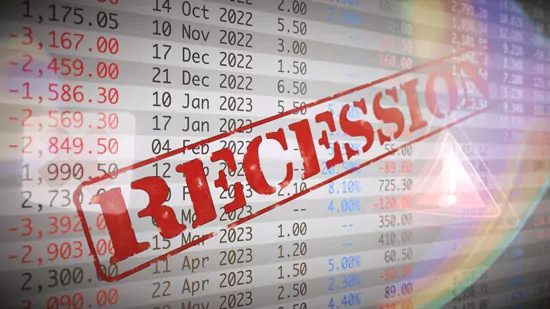Blog
We keep you up to date on the latest tax changes and news in the industry.
How to Manage Your Money During a Recession

According to one recent study, the probability of the United States experiencing a recession in the next year hit 96% in October 2022. If you needed a single statistic to outline the importance of paying attention to what is going on with the economy on a regular basis, let it be that one.
A recession can impact many things, including your job, your business, and your ability to generate a stable income. But at the same time, it also demands the question - what do you do about the money you already have? How do you best manage your money during a recession to make sure that you come out unscathed - or at least, in as solid of a position as possible - on the other side? The answers to these questions are complicated, but they are within reach - they simply require you to keep a few key things in mind along the way.

Managing Your Money in a Recession: Breaking Things Down
Experts agree that by far, one of the most important steps that you can take to manage your money during a recession is to save up an emergency fund as soon as you're capable of doing so.
If there was any major lesson taught to us by the COVID-19 pandemic, it's that one. In January 2020, few people could have predicted how drastically things would have changed just a few short months later. Suddenly, businesses found themselves closed without knowing when - or if - they'd be able to re-open again. Workers found themselves working from home, some without the capability to reasonably do so. Things changed seemingly overnight - proving that even when things seem like they're on solid footing, you truly never know what is right around the corner.
If you're in a position where if you lose your job or if your income is cut in some way, you won't be able to cover your upcoming expenses like rent, a mortgage, or utilities, you need to start working to save up an emergency fund now. It may not last indefinitely, but at the very least it can buy you enough time to figure out exactly what you need to do next.
Another viable way to manage your money during a recession is to not just invest in things that can be reasonably expected to increase in value over time but to diversify your investments over time. This is truly one of those situations where the old saying "don't put all your eggs in one basket" applies.

Don't try to choose between the stock market or something like real estate assets. If you're in a position to do so, choose both. Not only will both go up in value, but you'll also be able to significantly increase your long-term wealth over time. Even when it comes to something like the stock market, don't necessarily try to predict any individual winners. With something like an index fund, you're reaping the benefits of the strength of the entire market - not just one particular company.
Finally, always try to leverage tax advantages whenever possible. When considering the various forms of retirement accounts out there, for example, favor things like a 401k or a 457. Here, any amount of money that you put in gets deducted from your income, which impacts how much you pay in taxes for the short term. When speaking about something like a Roth IRA, any money that you put in is allowed to grow naturally and is totally tax-free until the day comes when you finally retire. Never underestimate the impact that steps like these can make on your long-term income, whether or not a recession is happening at the time.

In the end, even during periods with a particularly strong economy, it's crucial to acknowledge that a recession could still be right around the corner. As is true with most things, this is all cyclical - meaning that there will naturally be ups and downs that we all experience along the way. That's why, if you're worried about how you are going to effectively manage your money over the short term in a recession, it's always important to enlist the help of a trained professional to do precisely that. They can eliminate a lot of the stress from the situation, offering insight and expertise that allow you to focus on more important matters.
If you'd like to find out more information about how to manage your money during a recession, or if you just have any additional questions that you'd like to go over with someone in a bit more detail, please don't delay - contact us today.
Sign up for our newsletter.
Each month, we will send you a roundup of our latest blog content covering the tax and accounting tips & insights you need to know.
We care about the protection of your data.
“We are always looking to grow our business. Should you have any clients, friends, business associates looking for high quality accounting services from a CPA firm, please have them contact us.”
This e-mail (including any attachments) is only for the exclusive use of the individual to whom it is addressed. The information contained hereinafter may be proprietary, confidential, privileged and exempt from disclosure under applicable law. If the reader of this e-mail is not the intended recipient or agent responsible for delivering the message to the intended recipient, the reader is hereby put on notice that any use, dissemination, distribution or copying of this communication is strictly prohibited. If the reader has received this communication in error, please immediately notify the sender by telephone or e-mail and delete all copies of this e-mail and any attachments.
IRS Circular 230 Disclosure: In order to ensure compliance with IRS Circular 230, we must inform you that any U.S. tax advice contained in this transmission and any attachments hereto is not intended or written to be used and may not be used by any person for the purpose of (i) avoiding any penalty that may be imposed by the Internal Revenue Code or (ii) promoting, marketing or recommending to another party any tax-related matter(s) addressed herein.